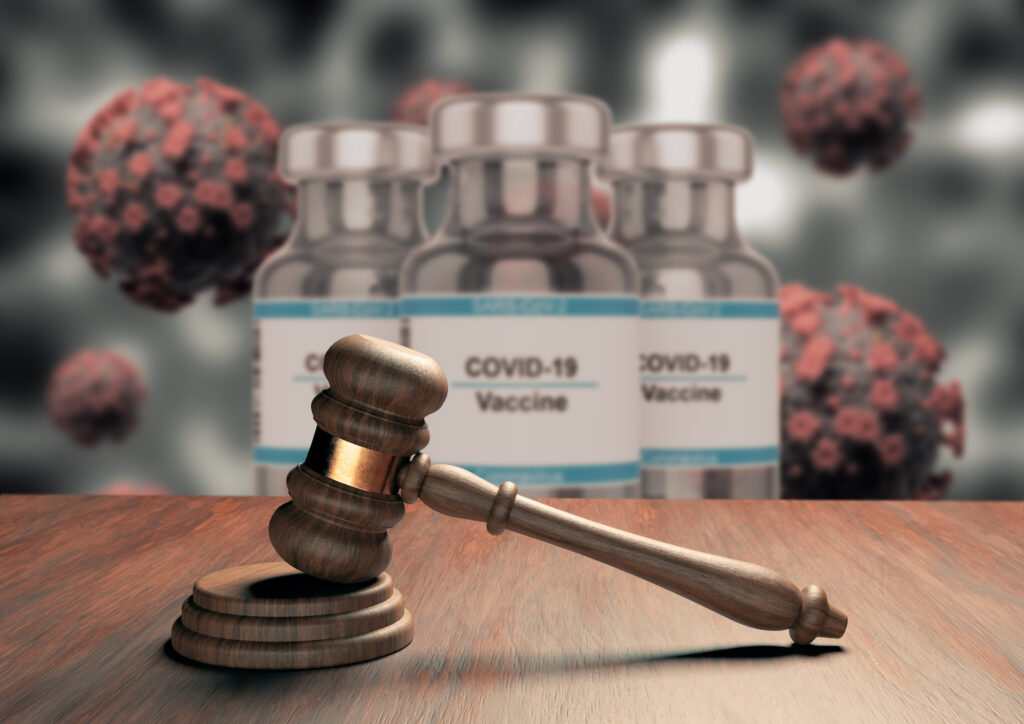
The impacts of coronavirus on how we work, how we study, how we enjoy a meal at a restaurant, were all widely discussed and felt across the entire nation. The impacts of the pandemic on the jail system and court system were not such a hot topic, and yet it had considerable effects on people’s well-being across the spectrum. From prison workers to inmates, to court personnel and attorneys, America’s justice system had to do some improvising.
So as we slowly move out of the worst of the pandemic era, we thought we’d look back at how this unprecedented health crisis impacted our jail and court system.
Court Cases and Postponed Hearings During the Height of the Pandemic
In the early stages of the spread, most people were not sure of what was happening or how best to respond. For a good few months, many states closed their courtrooms and postponed jury trials. This had ripple effects across the whole system. As court systems decreased, many courts issued bail and bail reductions to reduce the crowding of prisons unnecessarily.
For many people that were waiting for trials or hearings in jail, these pushbacks caused great uncertainty. Many district and state courts had to close their doors and thousands of cases were left floating in limbo. People that were waiting in jail for an upcoming trial, were dealt a bad hand. As NPR reported, the more than 3,000 jails across the country had to figure out how to avoid overcrowding and avoid people waiting endlessly for proceedings. The reports suggested that some jails had even used solitary confinement on people that had yet to be convicted, in an attempt to avoid the spread. This, of course, posed serious questions about the legality of that, given that many people in jail have yet to be convicted of any crime.
Many police departments would issue a summons for low-level offenses instead of arresting people and taking them to jail. Parole hearings were also fast-tracked for those whose sentences were ending or who have pre-existing medical conditions.
How the Virus Impacted the Prison System
Prisons and jails are not exactly places that can easily adapt to social distancing. Many prisons and jails were stunned by the virus and how quickly it spread, that response was slow and somewhat scrambled. Since the beginning of the pandemic, it has not been unusual to see prisons experience hundreds of covid-positive inmates in any given week at the same time.
According to the New York Times, as of April of 2021, more than 661,000 incarcerated individuals and/or staff had been infected with the virus. An estimated 2,990 people had died. The Marshall Project reported about 512,864 cases had been reported as of June 2021. Numbers possibly vary because many prisons have limited testing capacity or don’t always test inmates after they pass away. Reports have suggested that jails and prisons struggled to respond to the pandemic adequately and have caused inmates to become vulnerable and frightened.
As of February 2021, the Texas prison system has administered about 5,500 vaccines, but it is unclear how Texas began rolling out the vaccine across the prison population.
People Released From Prisons to Avoid Overcrowding
As much as facilities tried to accommodate the difficult restrictions, thousands of people were released early. In April of 2020, over 16,000 inmates were released. People released early were vetter and said to pose little threat to society. The decision-making process differed as to who even qualified for early release. In neighboring New Mexico, for example, the governor signed an early release for those that qualified. Qualifications included that they could not be sex offenders, were not convicted of a DWI, and had no time for domestic abuse or assault. The Governor of Texas, Greg Abbot, specifically signed against the practice, preventing prisons from releasing people. In an executive order, the governor banned the practice of releasing people previously convicted of violent crimes.
Prior to signing this executive order, some judges in the state had released inmates at no-cost personal bonds due to the pandemic. These bonds put a hold on the bail system and required people to come in for frequent check-ins and drug tests. After Harris County (Houston-area) released a murder suspect with only 3.5% of a $60,000 bond (a fraction of what is usually required), concerns were raised by Texas on the practice. Typically bonds are set based on specific criteria and the severity of the crime. Gov Abbott’s executive order was largely a response to these concerns.
Do You Know Someone in Need of Cash Bail? Contact Freedom Bail Bonds
Here at Freedom Bail Bonds, we help people go back to their homes and lives while they await their day in court. Facing criminal charges is stressful and brings a lot of uncertainty. We know how difficult it is.
Call us today and learn more about the process. We are here to help!